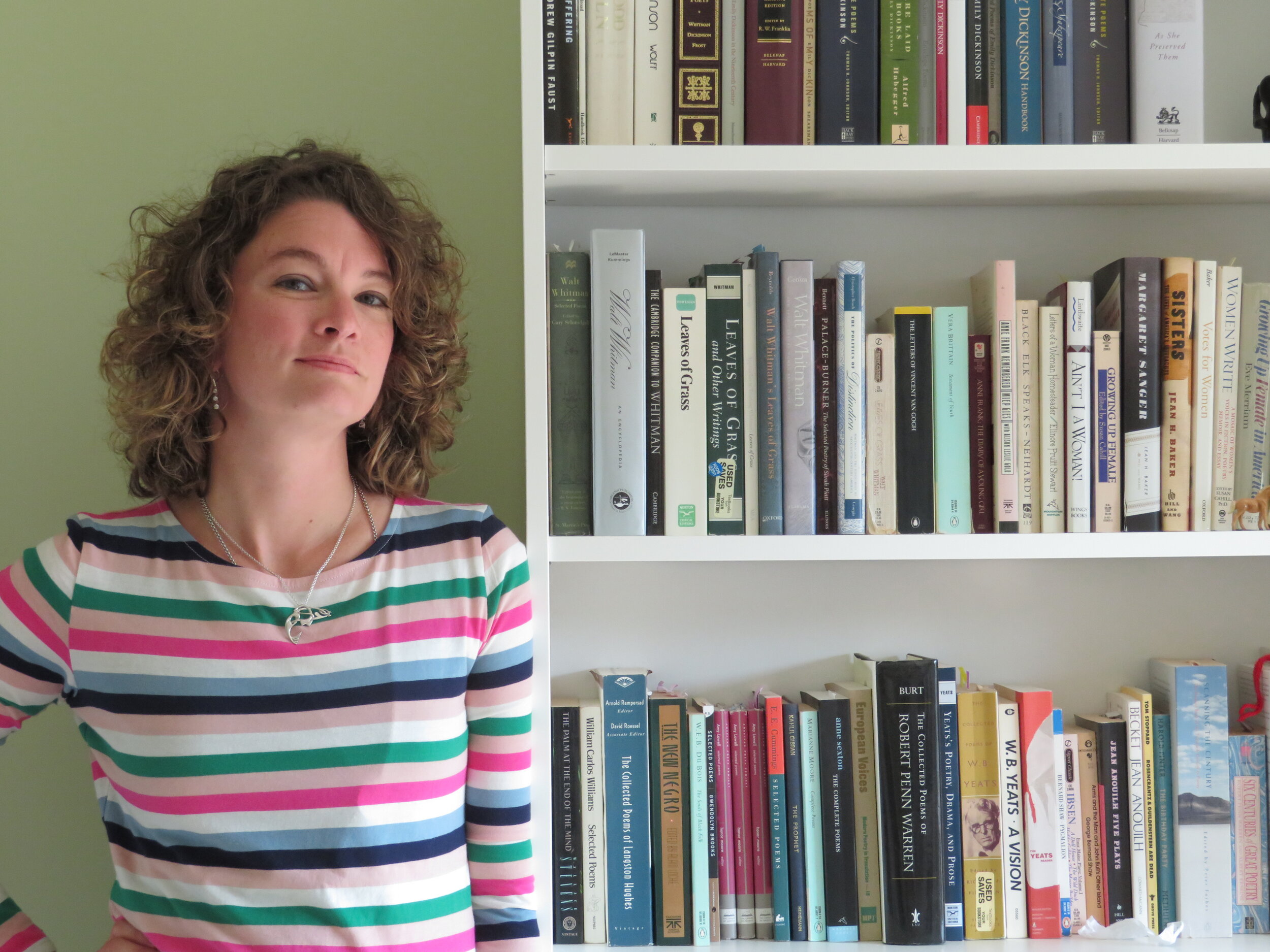In Conversation with Candice Mayhill
You open your essay setting your purpose as writing about connection of the soul to what is larger and unknown. Then you go into your personal experience. How do you see connection as coming to people in this way?
Connection, to other people and to the larger and the unknown, has to come through personal experience and through sharing personal experience. I had this idea, when I sat down to write this essay initially, that I was going to talk about time and I was going to use this neat little frame narrative to do it, about how awed I was to meet Eamon Grennan, and about how he, bless his heart, borrowed my watch and disappeared with it. I thought I was clever. I read it to my mother, over the phone, as I did with everything I had ever written; she laughed and laughed, and we talked about the timelessness of poetry. She died quite suddenly after that conversation, and I just couldn’t return to that essay. I couldn’t do my routine of writing and rowing and teaching; my rotation was off. Time, again, for me was running wrongly. I was out of step and wanted to capture that. For me, there is a great power in being able to facilitate conversation about death, about loss, about remembering, about grief. Grief is a connection, almost a tangible one, to what is larger and unknown; when we grieve, we’re expressing love to someone who is beyond us, we’re creating a bridge to something larger than ourselves.
You say transformation comes through deep suffering or deep love. That's a view shared by Franciscan friar and author Richard Rohr. In your experience, how do you think the experience of wonder/beauty can take us there?
Yes! Rohr says, “Before the truth sets you free, it tends to make you miserable.” We experience wonder when we’re challenged, when something we thought to be true before just isn’t, when we’re taken aback, when our systems fail. Deep suffering and deep love are both a loss of control. The order that we have been relying on just doesn’t work anymore; it’s a system failure that makes us look at the world in an entirely new way. We put aside the system by which we had ordered the world and realize that those systems are wholly inadequate. If our systems had been adequate, if we could discern the order of the world, where would be the wonder in that? A deep love or a deep suffering, they remove the scales from our eyes, they let us see the wonder on the road, wherever we are headed and wherever we are coming from.
By the close of your essay, you say: "Much of life needs to be faced unfettered under the fiery eye of heavens." This sounds like your lived experience in discovering that there's no way out of what happens to us. There is going forward each day, patiently waiting for healing from grief. Would you say this is what folks mean by accepting what is?
I think it’s radical acceptance. Sometimes “accepting what is” sounds so passive, like we are bending to the pressure of the inevitable or that we’re expecting that our patience has the reward of healing. Healing is work; it is an active process, and it takes practice. When we lose someone, we’re met with a lot of confining ideas: euphemisms that try to put the dead “in a better place,” artificial timelines for mourning, structures that are meant to, obviously, help us move on. What if we stopped doing that? What if instead of counting the minutes or accepting that narrative of acceptable mourning that we approached that loss for what it is? A decentering of the self, an unmooring of the soul from its resting place? Radical acceptance asks us to take on loss for what it is, let it out into the sun, let it be part of our life, in full recognition that, in doing so, we are building a bridge, not closing a door.
